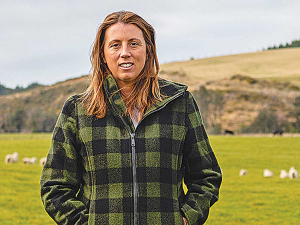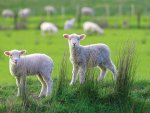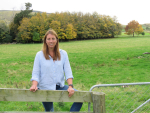OPINION: Uncertainty around the rules intending to limit carbon forestry risks undermining the Government’s well-intentioned efforts to protect productive farmland and rural communities.
Despite the introduction of new restrictions late last year, we continue to see entire sheep and beef farms purchased for forestry, particularly in regions such as Hawke’s Bay and Southland.
For farmers on the ground, this raises serious concerns -- not just about the future of their sector, but about whether the new rules will deliver as promised.
When these regulations were announced, they were a positive step toward addressing the rapid spread of carbon forestry.
The rules place a three-year moratorium on land classes 1-5 from entering the Emissions Trading Scheme (ETS), and cap the amount of land class 6 at 15,000 hectares per year. Land classes 7 and 8 remain unrestricted.
At the time, the Government said the new rules would apply from 4 December 2024, unless there was a clear intent for conversion before that date.
Since the announcement, farmers have contacted us as they have seen whole sheep and beef farm sales to forestry entities continue at significant pace, including in Hawke’s Bay and especially in some areas in Southland.
They have noted the land was bought well after the announcement was made in December.
The Ministry for Primary Industries has released some guidance on their view of intent, which we believe is too broad. B+LNZ has raised these concerns directly with Agriculture Minister Todd McClay.
We have made it clear that "intent" should mean that the process of purchasing the farm was underway before 4 December 2024.
We are asking for the removal of seedlings receipts and third party assessments from the guidelines as proof of intent.
B+LNZ has long been concerned about the scale and pace of whole farms being purchased in order to claim carbon credits.
Our concerns have been reinforced by the recent report from Parliamentary Commissioner for the Environment, Simon Upton.
The report confirms what farmers have been experiencing first-hand: that current policy settings, particularly within the ETS, are driving widespread land-use change to carbon forestry, with profound environmental, economic, and social consequences.
I want to be clear that we are not anti-forestry nor anti-carbon forestry. B+LNZ is strongly supportive of the integration of trees within farms.
But the impact on our farmers from the scale and pace of whole farm conversions is huge and disproportionate. Since 2017, more than 260,000 hectares of sheep and beef farmland has been purchased for forestry conversion.
For every 100,000 hectares planted, close to one million stock units are lost. These lost stock units represent not only lost export earnings, but also seriously impact rural businesses, local jobs, and the fabric of our farming communities.
While the Government’s steps to limit certain land classes from entering the ETS are welcome, the number of farms that have been sold into forestry after that announcement and before the rules come into full force is a red flag.
We also remain concerned that the changes may not go far enough. We will continue to monitor whole-farm sales closely to ensure the impact of this policy is fully understood -- and, most importantly, that it is fair.
Climate Change Commission’s modelling suggests that New Zealand could see more than 900,000 hectares of land converted to forestry between now and 2050, mostly in exotic trees.
That is a staggering figure. If we do not get the balance right, we risk sacrificing not only productive farmland, but also many of our rural communities.
We are calling on the Government to honour both the letter and the spirit of its policy, to close the loopholes, and give farmers certainty.



















